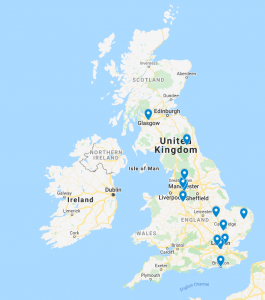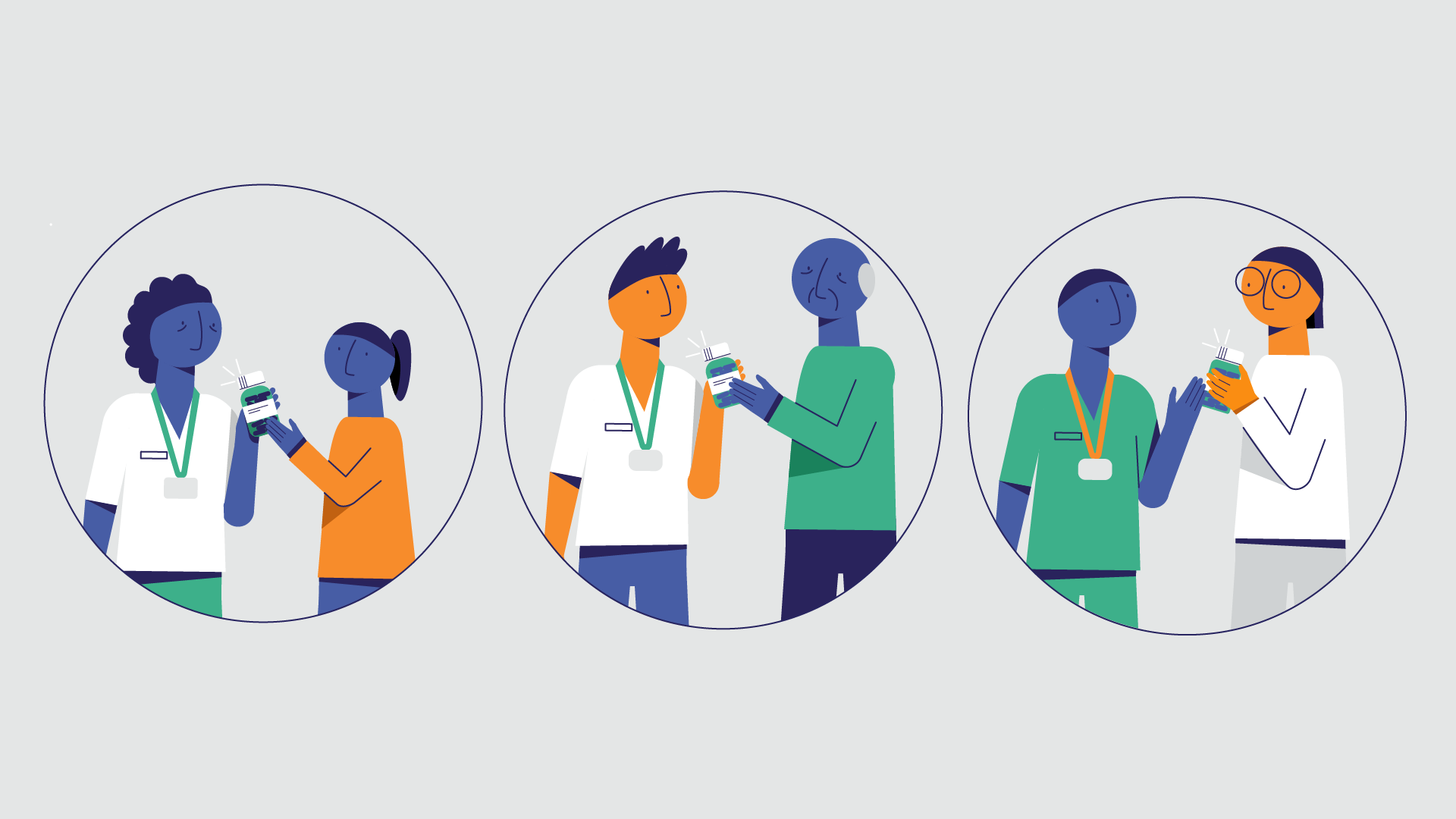Patient Advisory Committee (PAC)
IBD patients have been, and continue to be, central to the design and oversight of Gut Reaction
One of the ways that patients are involved in Gut Reaction is through the work of our Patient Advisory Committee
Who are the PAC and what do they do?
Our PAC is made up of 22 people affected by Crohn’s Disease or Ulcerative Colitis, who come from across England and Scotland and cover a range of ages and backgrounds. We have met (mostly virtually!) regularly from the outset of the project to integrate patient priorities and concerns into our actions and policies.
Meeting roughly every two months, PAC has so far reviewed early use cases and made recommendations on our data access process and our equality, diversity and inclusion (EDI) strategy. They are currently central to conversations around the financial sustainability of the hub.

The PAC has also played a significant role in designing our strategy for further patient and public involvement (PPI), including our updated strategy following our midpoint review and the development of training materials to support others new to PPI.
Depending on their interests, PAC members are also involved more closely with individual project work groups – for example, working on the sustainability workstream or governance projects.
You can read more about the experiences of two of our Committee members on the Crohn’s and Colitis UK blog.
What difference have the PAC made?
Feedback from our advisory committee members has influenced Gut Reaction in a myriad of ways, both large and small. Read more below for a non-exhaustive list of impacts that they have had on Gut Reaction and health data research more widely:
Our Story and Communication Strategy
It can be challenging to clearly and accurately describe what Gut Reaction is trying to achieve and what safeguards patients want to see in place for their data.
Our early conversations with PAC were essential to help us understand how to describe Gut Reaction and what level of information patients needed to see to feel comfortable with this data use. They were also very clear about the outputs they would like to see from the research.
Data access requirements
People living with IBD are understandably interested in knowing who can access their data through Gut Reaction, and under what circumstances.
We discussed the current data access process and safeguards used by the NIHR BioResource and the PAC made several recommendations to strengthen the patient oversight of data applications made by researchers.
Developing our equality, diversity and inclusion (EDI) strategy
We want to ensure that we hear from a wide range of voices in Gut Reaction, and that our policies, process and research reflect the needs of all of those who make up the IBD community.
Our PAC have led the development of our strategy to improve the inclusiveness of our research and our public involvement, drawing up recommendations to prioritise target areas for improvement.
Join Gut Reaction
Gut Reaction would not be possible without the support of people living with IBD choosing to share their health data. If you would like your data to be part of Gut Reaction and support vital research, you can join the IBD BioResource.
The IBD BioResource is a way that people living with IBD can sign up to be invited to take part in research studies – participants provide a biological sample, complete a health questionnaire and provide consent for researchers to access their health records. Researchers can use the samples and data for research, and invite participants to take part in studies that are relevant to them – participants can choose which (if any) studies they would like to take part in.
You can also join the IBD Registry. The IBD Registry is a partner in Gut Reaction, which means health data collected from people who participate in both the Registry and the IBD BioResource can be linked and united to create a rich dataset for research. The IBD Registry collects data from your hospital record on an ongoing basis, in order to build up a long-term picture of IBD treatment and care in the UK. If you join the Registry, you can also share information about your health with them directly, choose to share your data for research and ask to be contacted about new studies that are relevant to you and you may want to take part in.
The IBD BioResource and the IBD Registry are currently recruiting at more than 100 hospitals across the UK. If your hospital is a recruiting site, please ask your IBD team if you can take part at your next appointment. You can find more information about joining the BioResource here and the IBD Registry here.

